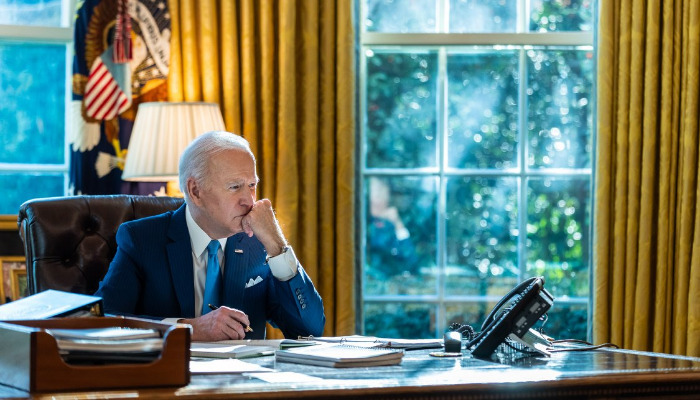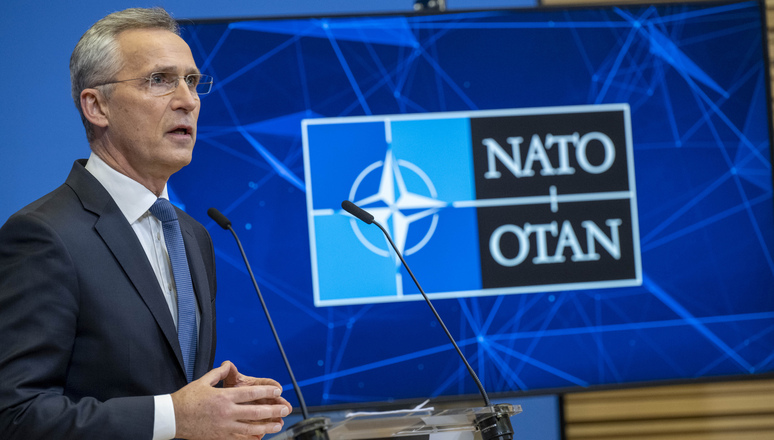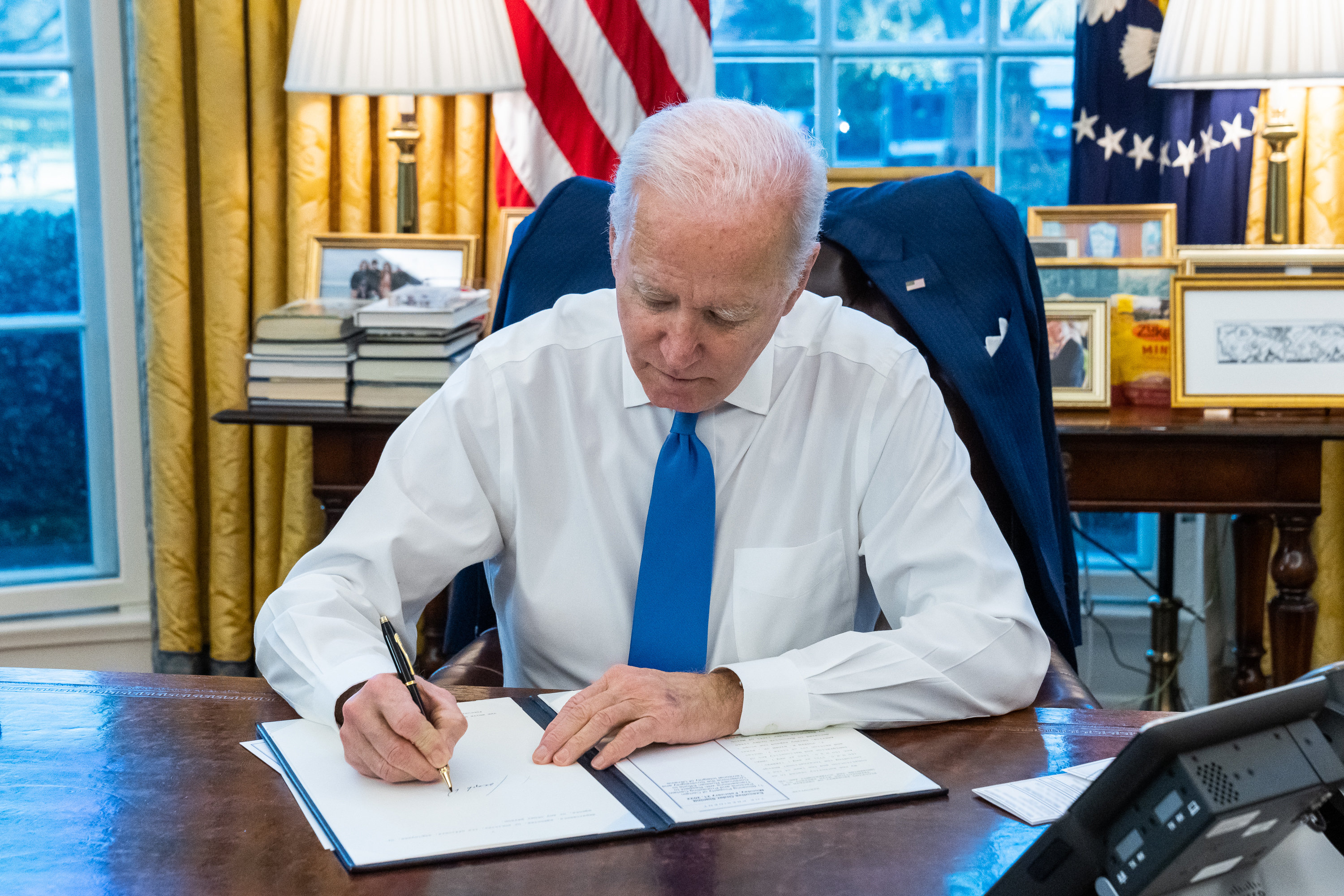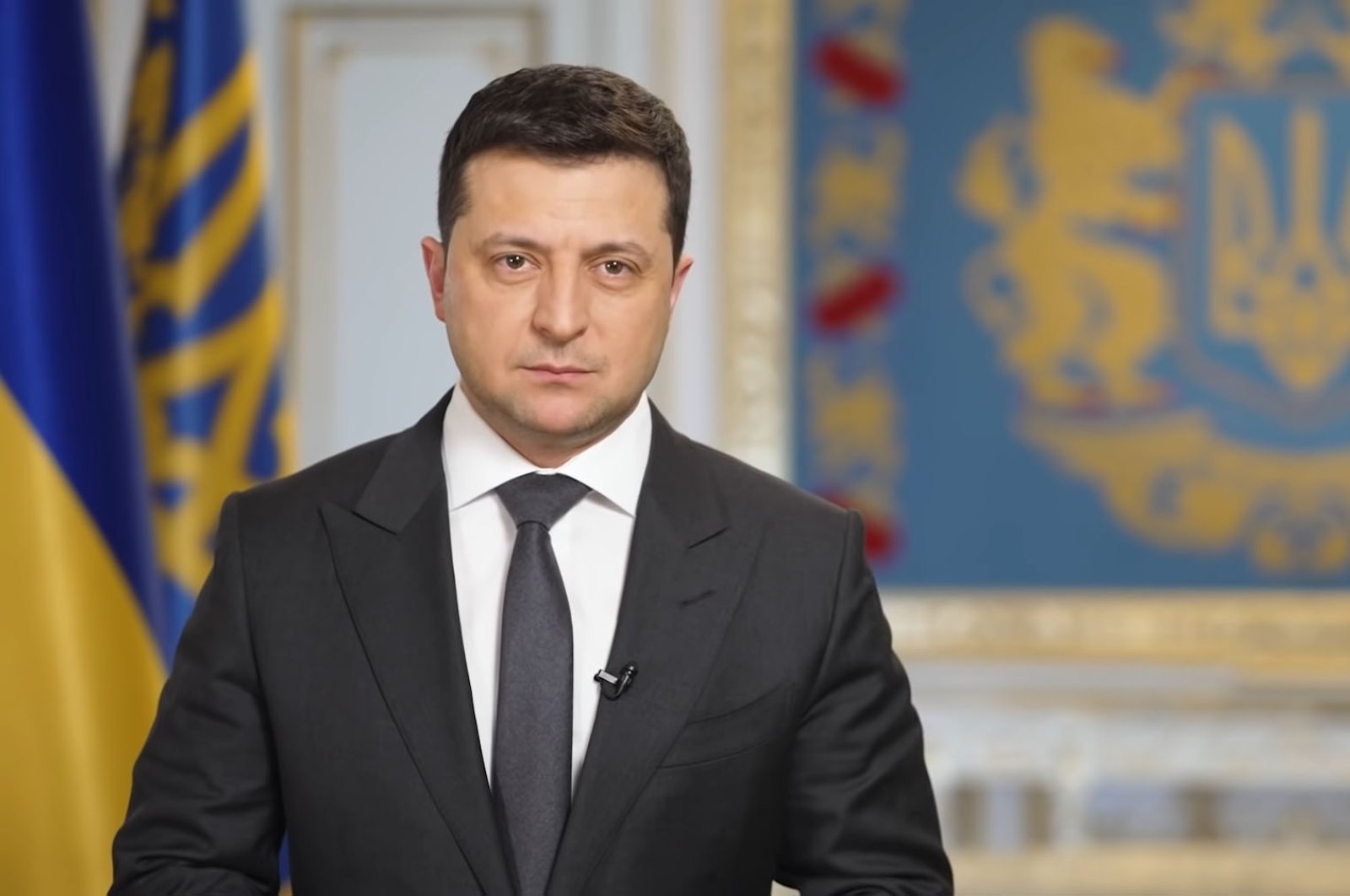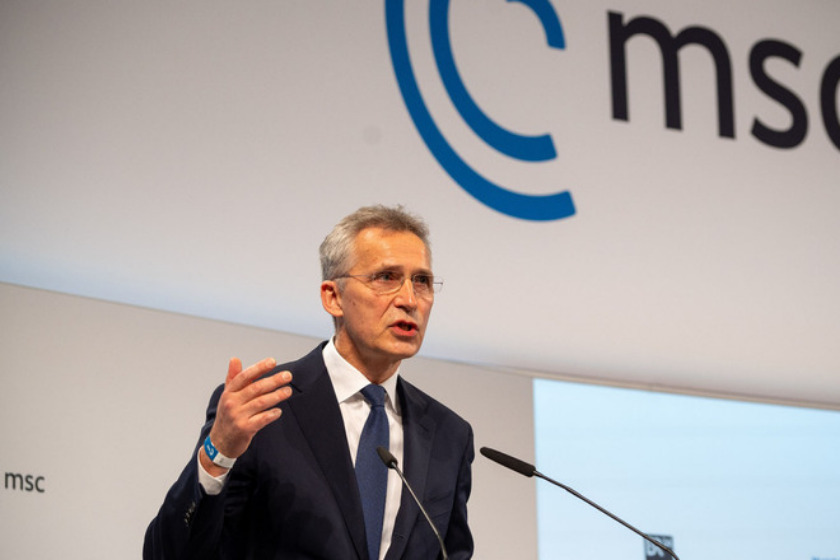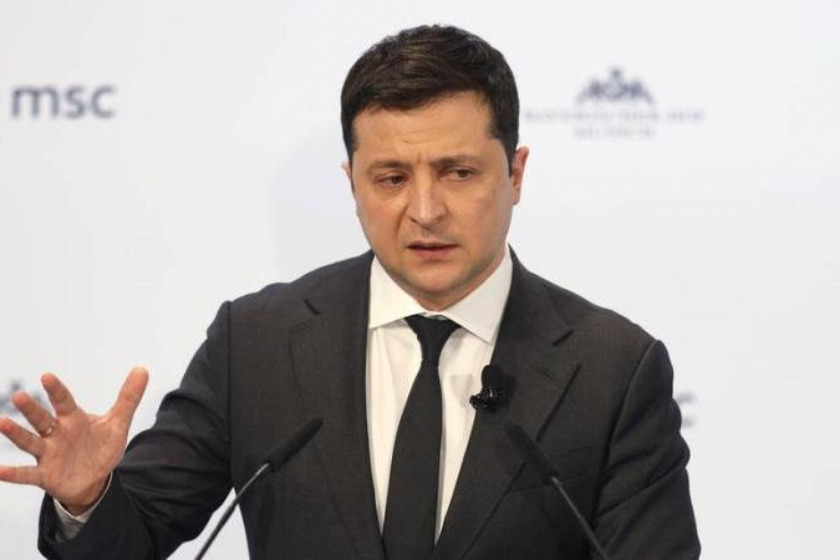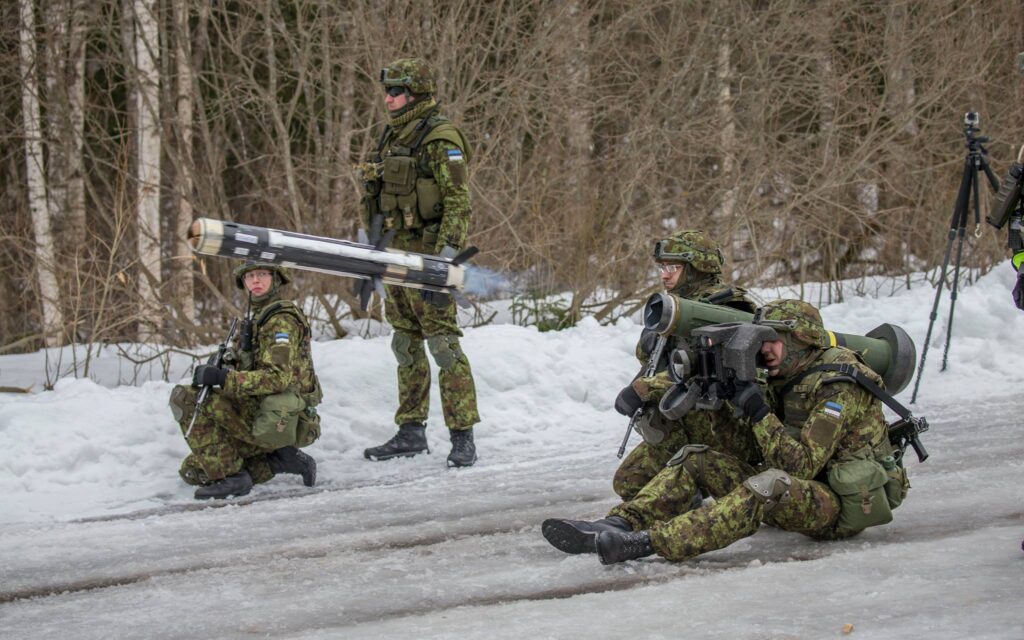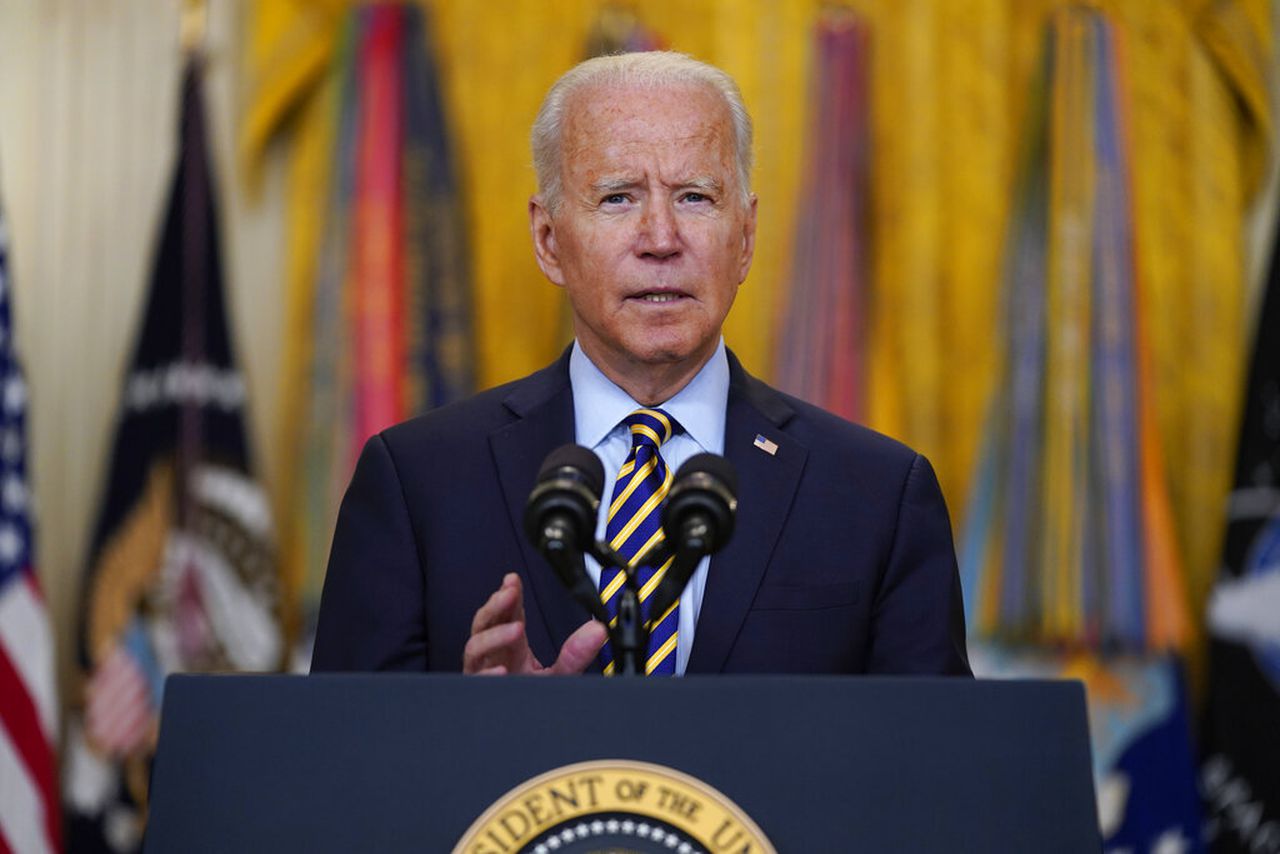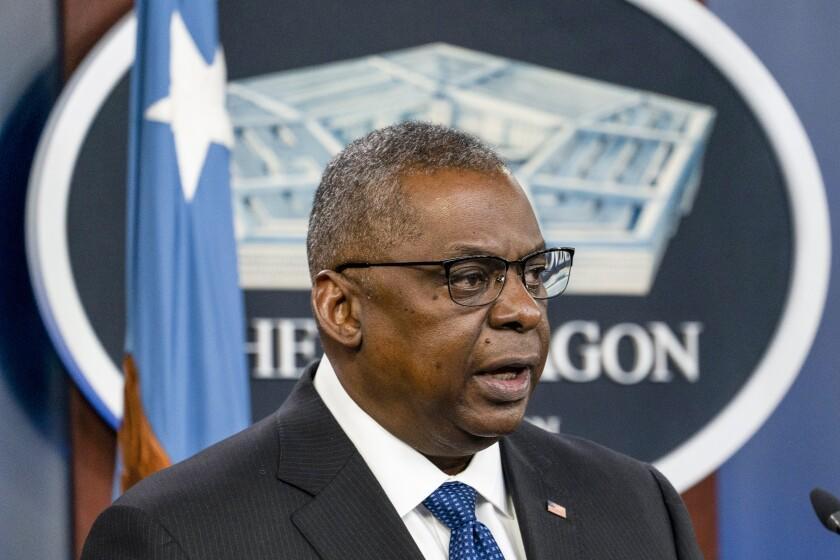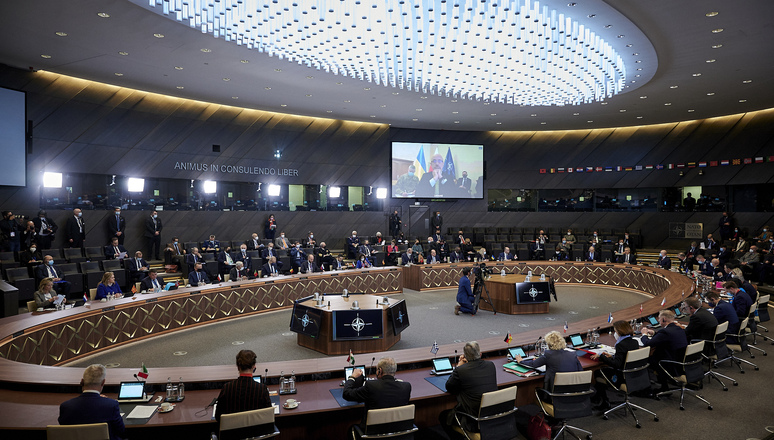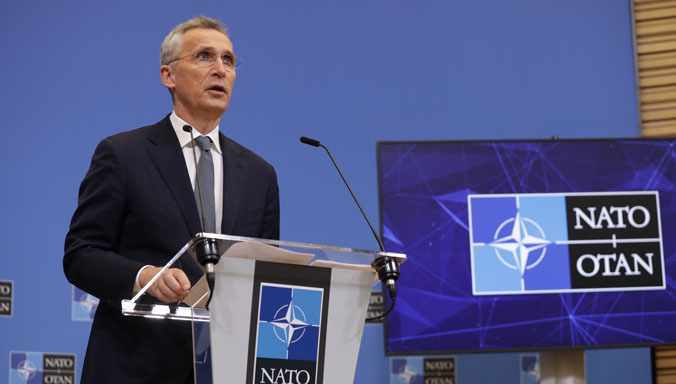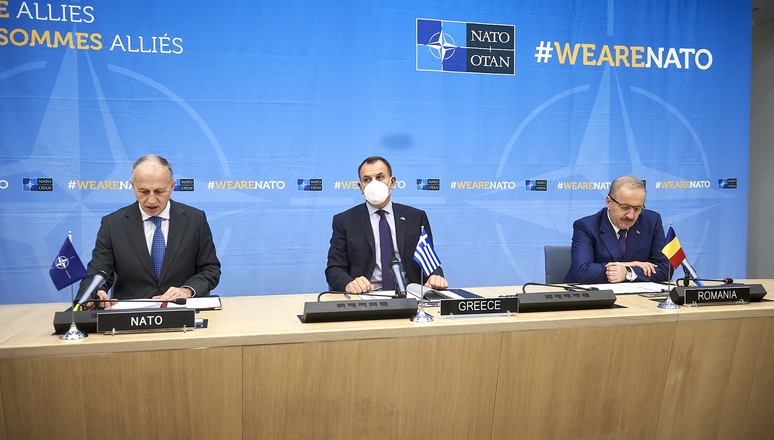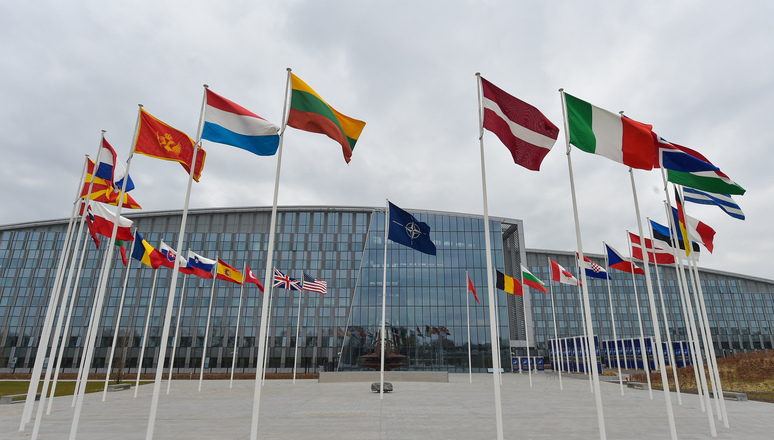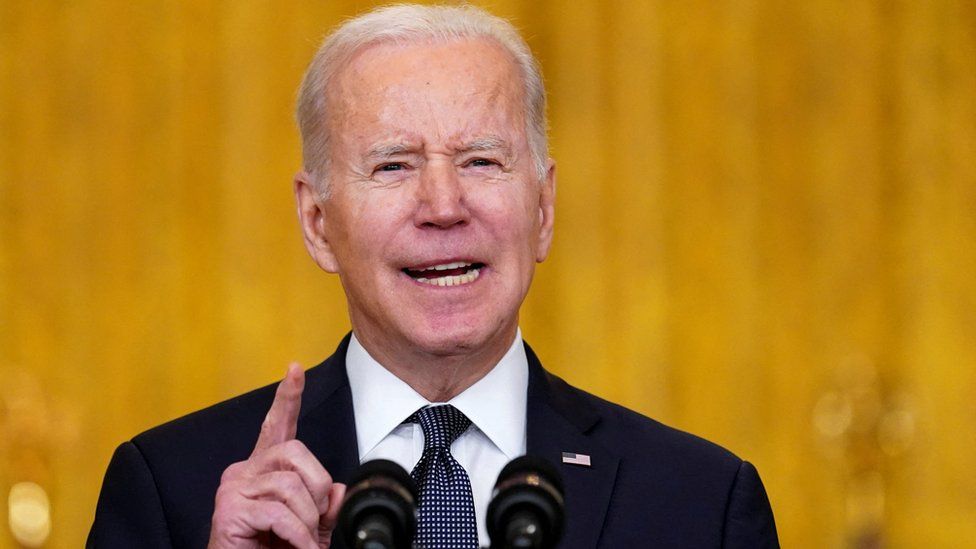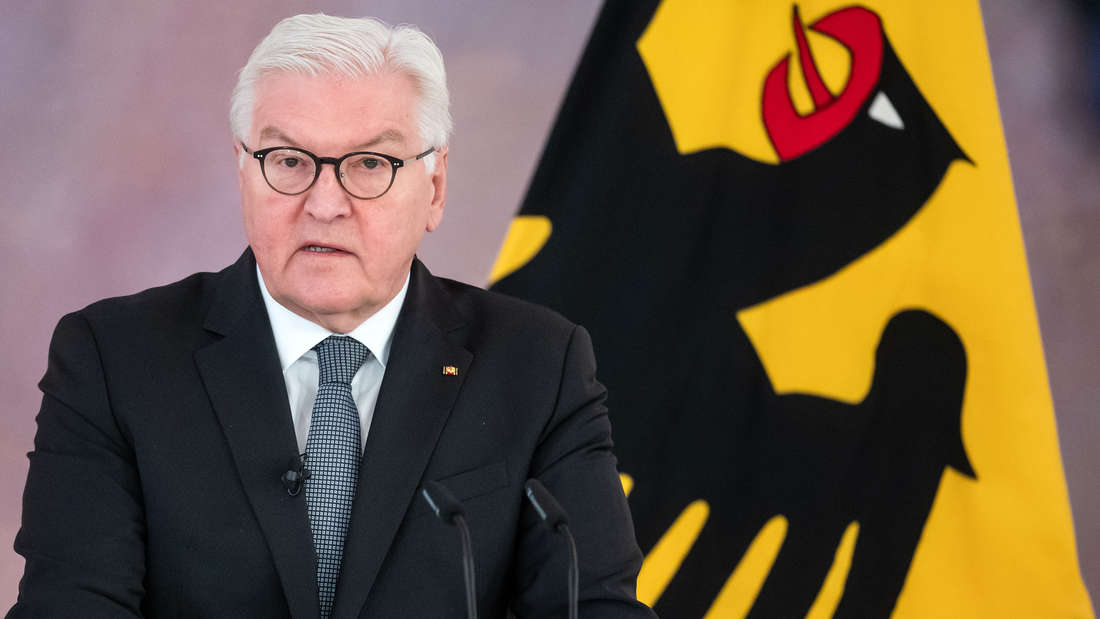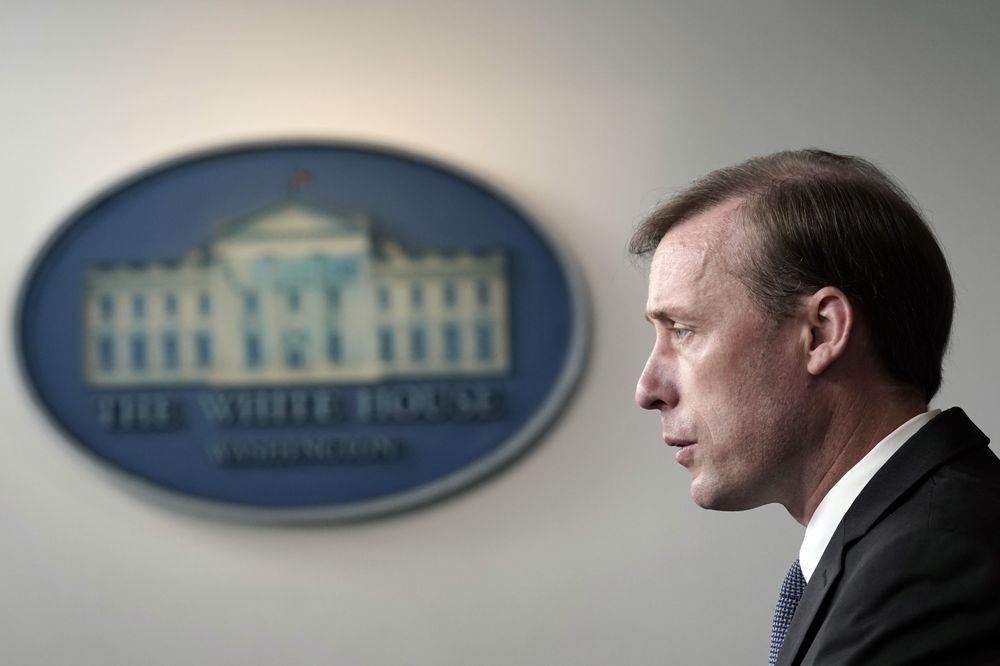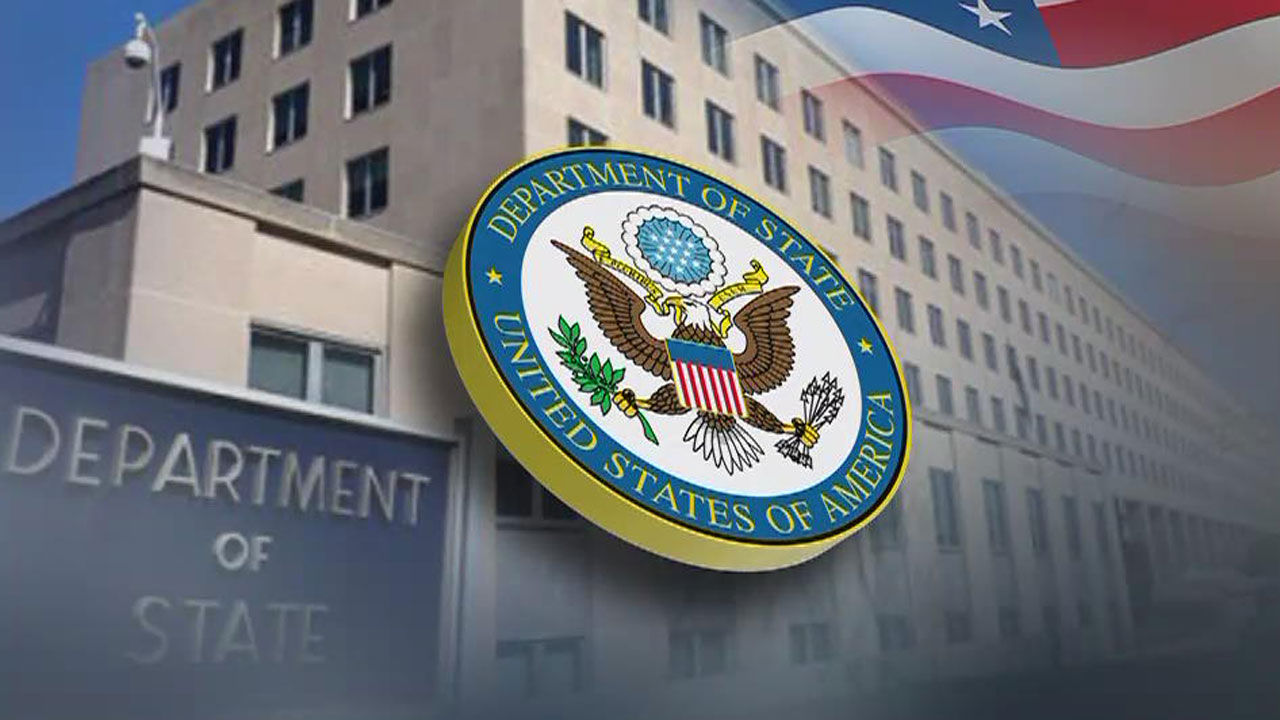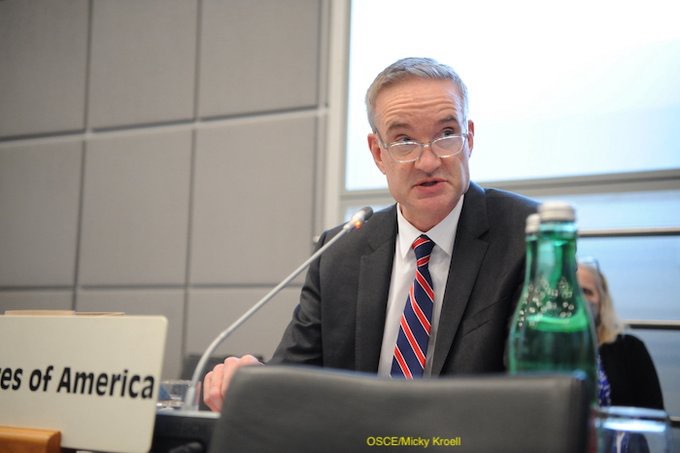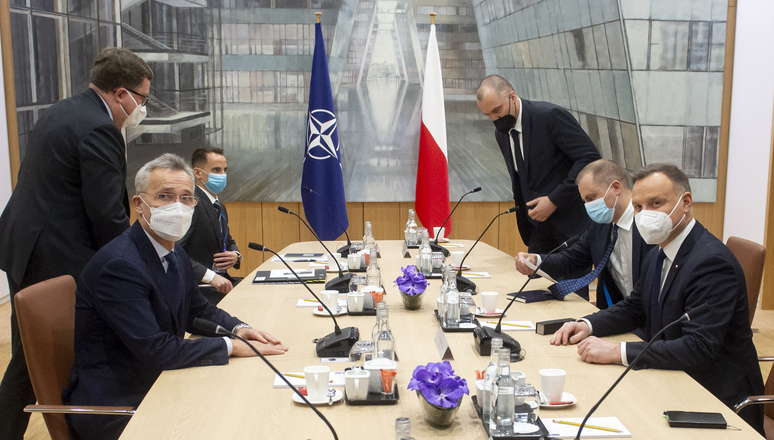news
Biden announces sanctions against Russia
U.S. President Joe Biden announced on Tuesday new sanctions in retaliation for Russia recognising two breakaway regions of Ukraine and sending troops there, adding to Western efforts to stop what they fear is the beginning of a full-scale invasion. According to Reuters the measures target Russian banks and sovereign debt, among other steps. Biden announced moves to block trade involving two large banks - VEB and the Russian Military Bank - and to cut off parts of the Russian economy from international financial systems. Biden said these moves went "far beyond" previous measures and would cut the Russian government off from Western financing for its sovereign debt. "I'm going to begin to impose sanctions in response, far beyond the steps we and our allies and partners implemented in 2014," he added, in a reference to Russia's annexation of Crimea from Ukraine. The hit to Russia's sovereign debt meant the Russian government would be cut off from Western financing, according to Biden. Earlier on Tuesday, Germany put the brakes on a new gas pipeline from Russia and Britain also hit Russian banks with sanctions. The Russian foreign ministry criticised the new measures as "illegitimate". The European Union also agreed new sanctions that will blacklist more politicians, lawmakers and officials, ban EU investors from trading in Russian state bonds, and target imports and exports with separatist entities. A raft of sanctions against Russia have been announced by Western nations. The most recent are from US President Joe Biden, who said there would be sanctions against two financial institutions, VEB and Russia's military bank. Parts of the Russian economy are being cut off from international financial systems, he said. Further sanctions against Russian elites and their families are expected. UK Prime Minister Boris Johnson said five banks were having their assets frozen, and three Russian billionaires - who will also be hit with UK travel bans - will face the same. After he announced the measures in the House of Commons earlier, some MPs argued that they did not go far enough - but Johnson said the sanctions could be extended. Germany suspended certification of the Nord Stream 2 pipeline, which was to bring gas from Russia. The country supplies Europe with about 40% of its gas, sourced from vast supplies in Russia's east. And the EU unanimously agreed its first wave of measures, which includes targeting all members of Russia's parliament who approved the Ukraine decision. Russian banks and access to the EU's financial markets were also blocked. But the sanctions so far fall short of what had been threatened in the event of invasion. There had been speculation that Russia could have faced being cut off from the global banking system, denied access to the dollar, or even face import or export restrictions.
NATO Secretary General: This is the most dangerous moment in European security for a generation
The NATO-Ukraine Commission met in Brussels on Tuesday (22 February 2022) for an extraordinary meeting to address the security situation in and around Ukraine. Allies condemned Russia’s decision to recognise the self-proclaimed Donetsk and Luhansk People’s Republics, as well as Russia’s further incursion into Ukraine. Calling this a “serious escalation by Russia,” NATO Secretary Jens Stoltenberg said Moscow had moved from covert attempts to destabilise Ukraine to overt military action, with many Russian units forward deployed in combat formations and “ready to strike.” The Secretary General commended Ukraine for its restraint in not responding to Russia’s repeated provocations. “We stand in solidarity with the Ukrainian people and its government,” he said. Mr Stoltenberg stressed that Allies are united in their full support for Ukraine’s sovereignty and territorial integrity within its internationally recognised borders, and continue to provide strong political support and military equipment to Ukraine. The Secretary General underlined that NATO will do whatever is necessary to shield Allies from aggression. In the last weeks, he noted, Allies have deployed thousands of more troops to the eastern part of the Alliance and placed more on standby. “We have over 100 jets at high alert and there are more than 120 Allied ships at sea, from the High North to the Mediterranean,” he said. The Secretary General also welcomed the economic sanctions announced by many NATO Allies and the decision by the German government that it cannot certify the Nord Stream 2 pipeline. At the same time, he noted that Allies continue to urge Russia, in the strongest possible terms, to choose the path of diplomacy. Calling this “the most dangerous moment in European security for a generation,” the Secretary General said that Europe and North America continue to stand strong together in NATO, committed to defend and protect each other.
Biden imposes sanctions over Putin's recognition of breakaway Ukraine regions
U.S. President Joe Biden signed a decree freezing the property of certain individuals and banning certain agreements in connection with Russia's efforts to undermine Ukraine's sovereignty and territorial integrity. According to the White House, U.S. sanctions affect all individuals who will have an economic cooperation with the so-called "DPR" and "LPR". Biden spoke with French President Emmanuel Macron and German Chancellor Olaf Scholz on Monday to condemn Putin's action and discuss "how they will continue to coordinate their response on next steps," according to a readout from the White House. He also spoke with Ukrainian President Volodymyr Zelensky to reaffirm U.S. commitment "to Ukraine’s sovereignty and territorial integrity," outline the "United States' response," including on sanctions, and vowed to "respond swiftly and decisively, in lock-step with its Allies and partners, to further Russian aggression against Ukraine," the statement added.
Ukraine's president: Our borders remain unchanged, we are not afraid
Ukrainian President Zelensky says "we are not afraid" after Russia recognises rebels, adds he expects "clear support" from West. In new comments, Ukraine's President Volodymyr Zelensky says the actions of the Russian federation are a violation of the integrity and sovereignty of the territory Ukraine. He says Ukraine's international borders will remain as they are no matter what Russia's statements. Zelensky says that Ukraine wants peace and supports a political and diplomatic settlement. "We are not afraid", he declares, adding that his country is waiting for clear and effective steps of support from its international partners. Zelensky vows that Ukraine will not give anything to anyone. U.S. President Joe Biden signed a decree freezing the property of certain individuals and banning certain agreements in connection with Russia's efforts to undermine Ukraine's sovereignty and territorial integrity. According to the White House, U.S. sanctions affect all individuals who will have an economic cooperation with the so-called "DPR" and "LPR". Biden spoke with French President Emmanuel Macron and German Chancellor Olaf Scholz on Monday to condemn Putin's action and discuss "how they will continue to coordinate their response on next steps," according to a readout from the White House. He also spoke with Ukrainian President Volodymyr Zelensky to reaffirm U.S. commitment "to Ukraine’s sovereignty and territorial integrity," outline the "United States' response," including on sanctions, and vowed to "respond swiftly and decisively, in lock-step with its Allies and partners, to further Russian aggression against Ukraine," the statement added.
NATO Secretary General: there is no real security in Europe without a strong transatlantic bond
In a keynote speech at the Munich Security Conference on Saturday (19 February 2022), NATO Secretary General Jens Stoltenberg stressed the importance of a strong transatlantic relationship for European security. Noting the real risk of conflict, the Secretary General called on Russia to change course, to step back from the brink, stop preparing for war and start working for a peaceful solution. He underlined that the current crisis is about the future of Ukraine, but also about global security. “Freedom and democracy are contested and strategic competition is on the rise,” he said, stressing that “this is a new normal and we must be prepared.” The Secretary General said that as Moscow attempts to roll back history and recreate its sphere of influence, NATO Allies will stand as one and do what is necessary to protect and defend each other. “Standing together in NATO, Europe and America will continue to keep the peace and protect our democratic way of life,” he said. NATO Allies continue their strong diplomatic efforts to find a political solution. However, despite Moscow’s claims, we have seen no sign of withdrawal or de-escalation so far. On the contrary, Russia’s build-up continues. We continue to monitor very closely. We call on Russia to do what it says, and withdraw its forces from the borders of Ukraine. This will be an important first step towards a peaceful solution. It is not too late for Russia to change course. To step back from the brink. Stop preparing for war. And start working for a peaceful solution. NATO remains ready to engage in a substantive dialogue with Moscow. To take meaningful reciprocal steps that can improve security for all countries inEurope. And for Russia too. We have made written proposals to Moscow. To reduce risks and increase transparency of military activities. Address space and cyber threats. And engage on arms control, including on nuclear weapons and missiles. This is a substantial agenda, where we believe it is possible to find common ground. So I have invited Russia and all NATO Allies to a series of meetings of the NATO-Russia Council.And I reiterated my invitation in a letter that I sent to Minister Lavrov on Thursday. The current crisis is about more than Ukraine. There is much at stake. Relations between NATO and Russia. European and transatlantic security. And ultimately the question of how we wish to organise relations between states. Moscow is attempting to roll back history. And recreate its spheres of influence. It wants to limit NATO’s right to collective defence. And demands that we should remove all our forces and infrastructure from the countries that joined NATO after the fall of the Berlin Wall. But let me be clear. There is no first class NATO members in the west of our Alliance. And second class NATO members to the east. We are all NATO Allies. And we stand as one. And we will always do what is necessary to protect and defend each other. Moscow also wants to deny sovereign countries the right to choose their own path. And their own security arrangements. For Ukraine - but also for other countries, such as Finland and Sweden. And for the first time, we now see Beijing joining Moscow in calling on NATO to stop admitting new members. It is an attempt to control the fate of free nations. To rewrite the international rulebook. And impose their own authoritarian models of governance. The current crisis demonstrates the importance of the transatlantic relationship for European security. Two World Wars and the Cold War has taught us that there is no real security in Europe without a strong transatlantic bond. Standing together in NATO, Europe and America will continue to keep the peace and protect our democratic way of life. As we have done for more than 70 years. NATO is a defensive Alliance. We are not threatening Russia or anyone else. But we will take all necessary measures to protect and defend all Allies. This is why in response to Russia’s pattern of aggressive actions, we have been strengthening our deterrence and defence across the Alliance. To avoid any miscalculation or misunderstanding about our ironclad commitment to defend each other. So if Kremlin’s aim is to have less NATO on Russia’s borders, it will only get more NATO. And if it wants to divide NATO, it will only get an even more united Alliance. Over the last years, our security environment has fundamentally changed for the worse. Peace cannot be taken for granted. Freedom and democracy are contested. And strategic competition is on the rise. This is a new normal.And we must be prepared. And do everything we can to keep the bond between America and Europe as strong as ever. After the experience of horrors of war, Ewald von Kleist knew that Europe and America together was the guarantee of lasting peace. It still is to this day. By standing together, we can and will keep our people safe. Protect our core values and principles. And uphold the rules-based international order“, - NATO Secretary General said. Stoltenberg was awarded the Munich Security Conference’s Ewald von Kleist award for his achievements as Secretary General of NATO. The Secretary General received the award with laudatory remarks by the President of the European Commission Ursula von der Leyen.
Zelensky says the West should stop its "appeasement" policy towards Russia
Ukrainian President Volodymyr Zelensky delivered a searing criticism of Western inaction against Russian aggression on Saturday, arguing that Ukraine has acted as a "shield" for the past eight years and that Europe's security architecture has utterly failed. Zelensky went on to criticize NATO for claiming it has an "open-door" policy while refusing to let Ukraine in, and called for the alliance to provide a time frame for his country's eventual membership. „Nor do we have millions of our citizens what is most important. We do not have all this. But there is something we have. We have the right. The right to demand a shift from a policy of appeasement to guarantees of security and peace“. U.S. officials had urged Zelensky not to leave the country, but he said after his speech that it was important not to show „panic“ or allow decisions to be made without Ukraine. „Just putting ourselves in coffins and waiting for the Russian soldiers to come in is just not something we are going to do," Zelensky said in a Q&A after the speech. „The world security architecture is fragile. It needs an update. The rules that the world agreed on decades ago no longer work. They do not keep up with new threats. They are ineffective for overcoming them. It is like taking some cough syrup when you need a COVID-19 vaccine. The security system is slow. It falters again. Because of selfishness, self-confidence, irresponsibility of countries at the global level. As a result, some commit crimes, and others stay indifferent. Indifference that results in complicity. It is symbolic that I am talking about this right here. Fifteen years ago, it was here that Russia announced its intention to defy global security. What was the world’s response? Reconciliation. What was the result? At the very least, the annexation of Crimea and aggression against my country. The UN, which is supposed to defend peace and world security, cannot defend itself. When its Charter is violated. When one of the UN Security Council members annexes the territory of one of the founding members of the UN. Meanwhile, the UN itself ignores the Crimea Platform, the goal of which is to de-occupy Crimea peacefully and protect the rights of residents of Crimea. We will defend our land. Having support from partners or not. Having been given hundreds of modern weapons or 5,000 helmets. We appreciate any help, but everyone should understand that these are NOT charitable contributions which Ukraine should ask for or remind about. Not fine gestures which Ukraine should bow low for. This is your contribution to the security of Europe and the world. And Ukraine has been a shield for eight years. For eight years, it has been holding back one of the largest armies in the world. This army stands along our borders, not those of the EU“, - Volodymyr Zelensky said.
Biden: I am convinced Putin has decided to invade Ukraine
President Joe Biden said on Friday that Russia President Vladimir Putin has decided to invade Ukraine, and that he continues to spread false information to try to build a pretext for a military strike that could happen in days. His comments came after a phone call with the leaders of Canada, France, Germany, Italy, Poland, Romania, Britain, the European Union and NATO, the White House said. The leaders pledged to continue pursuing diplomacy while preparing to impose swift, coordinated economic costs on Russia should it choose further conflict, according to a White House readout of the call. "As of this moment I am convinced that he has made the decision (to invade)," Biden told reporters in Washington. "We have reason to believe that," Biden added, citing U.S. intelligence assessments.
Estonia delivers Javelin anti-tank missiles to Ukraine
According to Reuters Estonia delivered U.S.-made Javelin anti-tank missiles to Ukraine on Friday, the Estonian defence ministry said. "At the moment, these missiles are more useful for Estonia's security in defence of Ukraine rather than at a live fire exercise on an Estonian training area," Lieutenant General Martin Herem, Commander of the Estonian Defence Forces, said in a statement. "This is a small step by Estonia in support of Ukraine, but it is a real and tangible contribution to defence against Russian aggression." The shoulder-operated medium-range missiles guide themselves after launching, allowing the shooter to take cover, according to the ministry. NATO members Estonia, Latvia and Lithuania said on Jan. 21 they will provide Ukraine with U.S.-made anti-armour and anti-aircraft missiles, days after receiving clearance from the U.S. State Department to send U.S.-made missiles and other weapons there.
Biden and other European leaders say Russia’s military build-up in and around Ukraine is continuing, despite claims by Moscow of a drawdown
NATO Secretary General Jens Stoltenberg on Friday took part in a secure conference call organised by the President of the United States Joe Biden on Russia’s continued military build-up in and around Ukraine and continued efforts to pursue diplomacy. According to the NATO press service the call also included British Prime Minister Boris Johnson, Canadian Prime Minister Justin Trudeau, French President Emmanuel Macron, German Chancellor Olaf Scholz, Italian Prime Minister Mario Draghi, Polish President Andrzej Duda, Romanian President Klaus Iohannis, as well as the President of the European Council Charles Michel and the President of the European Commission Ursula von der Leyen. The NATO Secretary General updated his colleagues on efforts at NATO to pursue dialogue with Russia and provide assurance to Allies. Participants stressed that Russia’s military build-up in and around Ukraine is continuing, despite claims by Moscow of a drawdown, and reiterated their strong call on Russia to resolve this crisis through diplomacy and dialogue, while stressing their support for Ukraine’s sovereignty and territorial integrity. The Secretary General recalled that NATO sent Russia concrete proposals in January, as well as his invitation for further meetings of the NATO-Russia Council to discuss European security, including the situation in and around Ukraine. At the same time, Mr Stoltenberg stressed that, as a defensive Alliance, NATO is doing what is necessary to protect and defend all Allies.
Pentagon chief warns Shoigu against further escalation around Ukraine
U.S. Secretary of Defense Lloyd Austin has warned Russian Defense Minister Sergei Shoigu against escalating tensions around Ukraine and called on him to withdraw Russian troops from the Ukrainian border to their permanent bases. According to the U.S. Department of Defense, the phone call between the two ministers took place on Friday, Ukrinform reports. "On February 18, Secretary of Defense Lloyd J. Austin III spoke with Russian Minister of Defense Sergey Shoigu. Secretary Austin called for deescalation, the return of Russian forces surrounding Ukraine to their home bases, and a diplomatic resolution," the Pentagon said in a press release. As was reported earlier, Russia continues to mass more than 150,000 troops around Ukraine's borders. Meanwhile, the United States and NATO are continuing to strengthen Ukraine's and Allies' defenses on the eastern flank in response to threats from Russia. Austin is on a visit to Poland on Friday, February 18. In a joint press conference with his Polish counterpart, the Pentagon chief said that the entire North Atlantic Alliance supports Ukraine, as well as the country's right to follow its chosen path.
NATO Defence Ministers reaffirm their strong commitment to open door policy, and the importance of partnerships
NATO Defence Ministers “met with our close partners Ukraine and Georgia; we addressed the continued threat of Russian aggression, the deteriorating security situation in the Black Sea region, and NATO’s strong political and practical support for both countries,” NATO Secretary General Jens Stoltenberg said. “Allies confirmed that NATO’s door remains open; any decision on NATO membership is for NATO Allies and aspirant countries to take; nobody else,” he added. “NATO Allies restated their strong support for the sovereignty and territorial integrity of both Georgia and Ukraine. We cannot accept a return to an age of spheres of influence, where big powers bully, intimidate, or dictate to others. There can be no decisions about Ukraine without Ukraine; and no decisions about Georgia without Georgia,” the Secretary General highlighted. In the final session of this ministerial, NATO Defence Ministers also met with the Defence Ministers of Finland and Sweden and with the High Representative of the European Union for Foreign Affairs and Security Policy and Vice-President of the European Commission. NATO considering new battlegroups in eastern Europe after ‘no sign’ of Russian de-escalation
NATO Secretary General: Russia’s build-up the most serious crisis in decades
NATO Secretary General Jens Stoltenberg on Tuesday (15 February 2022) stated there are signs from Moscow that diplomacy should continue, saying that this “gives grounds for cautious optimism”. At the same time, the Secretary General stressed that there is no indication of any de-escalation on the ground. “Russia has amassed a fighting force in and around Ukraine, unprecedented since the Cold War”, Mr Stoltenberg said ahead of a meeting of NATO Defence Ministers. “Everything is now in place for a new attack, but Russia still has time to step back from the brink”, Mr Stoltenberg said, urging Russia “to stop preparing for war and start working for a peaceful solution to the crisis.”
Romania joins NATO’s most successful munition cooperation framework
NATO’s Air Battle Decisive Munitions (ABDM) High Visibility Project welcomed Romania as its fifteenth participant. A signing ceremony, led by Mircea Geoană, NATO Deputy Secretary General, Nikolaos Panagiotopoulos, Minister of National Defence of the ABDM’s lead nation – Greece, and Vasile Dîncu, Minister of National Defence of Romania, took place in the margins of the Meeting of NATO Defence Ministers in Brussels. The ABDM initiative has been giving Allies access to critical air-launched munitions under more favorable conditions since its start in 2014. The NATO Deputy Secretary General said: “[ABDM] has already lived up to this promise since 2018. Through innovative acquisition strategies, participants have reduced their cost for precision guided munitions by 15 to 20 percent. In response to urgent operational requirements, they were able to cut down delivery timelines by up to one year. At the same time, they significantly improved the interoperability and shareability of their stockpiles, making NATO troops a more unified force in operations”. Romania officially joined the other participants - Belgium, the Czech Republic, Denmark, Finland, Greece, Hungary, Italy, the Netherlands, Norway, Poland, Portugal, Slovakia, Spain and the United Kingdom.
NATO considering new battlegroups in eastern Europe after ‘no sign’ of Russian de-escalation
According to the Statement by NATO Defence Ministers on the situation in and around Ukraine, Nato considering new battlegroups in eastern Europe after ‘no sign’ of Russian de-escalation „We are gravely concerned by the very large scale, unprovoked and unjustified Russian military build-up in and around Ukraine and in Belarus. We urge Russia, in the strongest possible terms, to choose the path of diplomacy, and to immediately reverse its build-up and withdraw its forces from Ukraine in accordance with its international obligations and commitments. We remain committed to our dual-track approach to Russia: strong deterrence and defence, combined with openness to dialogue. Russia’s actions pose a serious threat to Euro-Atlantic security. As a consequence and to ensure the defence of all Allies, we are deploying additional land forces in the eastern part of the Alliance, as well as additional maritime and air assets, as announced by Allies, and have increased the readiness of our forces. Our measures are and remain preventive, proportionate and non-escalatory. We are prepared to further strengthen our defensive and deterrent posture to respond to all contingencies. Our commitment to Article 5 of the Washington Treaty is iron-clad. We stand united to defend each other. NATO remains committed to the foundational principles underpinning European security, including that each nation has the right to choose its own security arrangements. We reaffirm our support for the territorial integrity and sovereignty of Ukraine within its internationally recognised borders. As stated previously, any further Russian aggression against Ukraine will have massive consequences and carry a high price. NATO will continue to closely coordinate with relevant stakeholders and other international organisations including the EU. NATO and Allies continue to pursue diplomacy and dialogue with Russia on Euro-Atlantic security issues, including at the highest levels. We support all these efforts, and efforts in the Normandy Format to implement the Minsk agreements. We have expressed our readiness to engage in a Renewed European Security Dialogue initiated by Poland as the current OSCE Chair. We have made substantive proposals to Russia to enhance the security of all nations in the Euro-Atlantic region and await a response. We have repeatedly offered, and continue to offer, further dialogue through the NATO-Russia Council, and stand ready to engage. We strongly encourage Russia to reciprocate and to choose diplomacy and de-escalation“, - NATO Defence Ministers said. Nato secretary general sees ‘no sign of de-escalation on the ground’ and says organisation is developing options for bolstering eastern flank. Russia announces troop pullback from border with Ukraine. President Joe Biden urged Russia to step back from the brink of war on Tuesday and said reports that Russia has withdrawn some forces from the Ukraine border have not been verified.
Biden says Russian attack on Ukraine still possible
President Joe Biden urged Russia to step back from the brink of war on Tuesday and said reports that Russia has withdrawn some forces from the Ukraine border have not been verified. “To the citizens of Russia: you are not our enemy, and I don’t believe you want a bloody, destructive war against Ukraine," Biden said in nationally televised remarks from the White House. According to Reuters, Biden said the United States is "not seeking direct confrontation with Russia" but that if Russia were to attack Americans in Ukraine, "We will respond forcefully." Biden said the United States and its NATO allies are prepared for whatever happens and that Russia will pay a steep economic price if Moscow launches an invasion. He said a Russian attack on Ukraine remains a possibility and reports that some Russian forces have moved away from the Ukraine border have not yet been verified by the United States. "We are ready to respond decisively to a Russian attack on Ukraine, which remains very much a possibility," Biden.
Frank-Walter Steinmeier was elected for a second term as Germany's president
The incumbent won 77% support (or 1045 of the 1425 votes) at a so-called Bundesversammlung (Federal Convention) in Berlin. Twelve votes were deemed invalid. According to DW the session consisted of the members of Germany's Bundestag, or lower house of parliament, along with an equal number of delegates chosen by the country's 16 states, or Länder. In accepting a second five-year term, Steinmeier said he is on the side of everyone promoting democracy and warned about the prospect of war if Russian invades Ukraine. "We are in the midst of the danger of a military conflict, a war in Eastern Europe," Steinmeier told the convention, adding that "Russia bears responsibility for this."
Biden's national security adviser urges Americans to leave Ukraine within 48 hours due to Russian threat
According to CNN, US national security adviser Jake Sullivan warned Americans in Ukraine on Friday to leave within one to two days, spelling out what a Russian attack on the country could look like -- and that civilians could die. "Any American in Ukraine should leave as soon as possible, and in any event in the next 24 to 48 hours," Sullivan said. "We obviously cannot predict the future, we don't know exactly what is going to happen. But the risk is now high enough and the threat is now immediate enough that this is what prudence demands." "If a Russian attack on Ukraine proceeds, it is likely to begin with aerial bombings and missile attacks that could obviously kill civilians without regard to their nationality. A subsequent ground invasion would obviously involve the onslaught of a massive force."
EXCLUSIVE: The U.S. along with its allies and partners, is prepared to respond in a coordinated manner if Russia invades Ukraine, the U.S. State Department says
The US, along with its allies and partners, is prepared to respond in a coordinated and harsh manner if Russia invades Ukraine. A State Department spokesperson spoke exclusively to Europetime about the possibility of a Russian invasion of Ukraine. On February 11, US President Biden called for all US citizens to leave Ukraine immediately. According to the media, Russia may have decided to invade Ukraine, and this might happen in the next hours. Is there a clear plan in place in response to Russia that was developed with the cooperation and unity of all partners, including the EU, NATO, and the G7? Europetime sent a question to the US Department of State in this regard. „We are united against what Russian is contemplating and are united in our commitment to impose severe consequences on Russia’s economy, even as each of us makes use of our own authorities and tools to impose them. Look no further than the public comments by the leaders of the G7, the EU, and NATO“, - the U.S. State Department said. Russia could invade Ukraine „at any time“ and American citizens should leave immediately, the US has warned. An invasion could start with aerial bombing that would make departures difficult and endanger civilians, the White House said on Friday. The US statement prompted countries around the world to issue fresh warnings to nationals in Ukraine. The UK, Australia, Canada and the Netherlands are among those urging citizens to leave as soon as possible. However, attempts to deescalate tensions through diplomacy are set to continue on Saturday, with both US President Joe Biden and France's President Emmanuel Macron due to speak to Russia's Vladimir Putin by phone. Moscow has repeatedly denied any plans to invade Ukraine despite massing more than 100,000 troops near the border.
Ambassador Carpenter: If Russia chooses the path of military escalation then we’re prepared to impose what have been described as massive and unprecedented consequences
“U.S. officials say that Russia has two paths. Secretary of State Antony Blinken describes a path of diplomacy and dialogue or massive consequences. After this statement and from yesterday’s and today’s meeting, what is your impression? Which path has Russia chosen? For example, French President Macron said there are crucial days ahead after the Putin summit. The question of the Europetime was answered by Ambassador Michael R. Carpenter, U.S. Permanent Representative to the Organization for Security and Co-operation in Europe (OSCE). Ambassador Carpenter: Russia has amassed an unprecedented force on its border with Ukraine as well as in Belarus – well over 100,000 troops on its own border with Ukraine and up to 30,000 troops, if not more, inside Belarus. It’s armed to the teeth. It has everything from artillery and attack helicopters to combat aircraft and every manner of enablers that’s poised and ready to attack if the order is given. So you’d have to ask President Putin what he intends to do next. We have made clear that we are sharpening the choices for the Kremlin. We’re offering our preferred path, which is the path of diplomacy and dialogue, including here at the OSCE, but also, as I’ve said earlier, at NATO and bilaterally, and we’re willing to engage on all the concerns that Russia wants to put on the table. We’re of course going to put our concerns on the table too, together with those of our partners and allies. But we’re willing to have that conversation in an honest and open manner. Now, on the flip side, if Russia chooses the path of military escalation – God forbid, but if it does – then we’re prepared to impose what have been described as massive and unprecedented consequences. And by “we,” I mean not just the United States but the entire G7, the entire North Atlantic Alliance, NATO, as well as the European Council, which has also coordinated very closely with the United States. So the choice is President Putin’s to make, and I don’t – I can’t tell you what choice he’s going to take. But that is, roughly speaking, the sharpened choices that we have presented going forward“. French President Emmanuel Macron has told reporters that President Vladimir Putin assured him that Russian forces would not ramp up the crisis near Ukraine's borders. Russia has denied any plans to invade Ukraine, but it has assembled more than 100,000 troops near its borders. US officials believe Russia has assembled 70% of military forces needed for a full-scale invasion. President Macron this week is on a diplomatic tour of national capitals. He arrived in the Ukrainian capital, Kyiv, on Tuesday after almost six hours of talks with Mr Putin in Moscow on Monday. At a news conference with Ukraine's President Volodymyr Zelensky, Macron said there was now the chance to "make these negotiations move forward" between Russia and Ukraine, and that he could see "concrete solutions" to reducing tensions. Putin hinted on Monday that some of Mr Macron's proposals "could form the basis of further joint steps" - although they were "probably still too early to talk about". US President Joe Biden met the German leader in Washington on Monday and threatened to shut down a key Russian gas pipeline to Germany, called Nord Stream 2, if Moscow invaded Ukraine.Chancellor Scholz - on his first trip to Washington since becoming chancellor and facing criticism for his response to the Ukraine crisis - was however more ambiguous about the pipeline than Mr Biden.
NATO mulls longer-term military posture in eastern Europe
NATO is considering a longer-term military posture in eastern Europe to strengthen its defences, Secretary-General Jens Stoltenberg said on Monday, as tensions remained high over Russia's military build-up near Ukraine. "We are considering more longer-term adjustments to our posture, our presence in the eastern part of the alliance. No final decision has been made on that but there is a process now going on within NATO", he told reporters in Brussels. „If Russia really wants less NATO close to the borders, they get the opposite," Stoltenberg said at a news conference with Polish President Andrzej Duda, referring to NATO's response to deploy battlegroups on its eastern territory following Moscow's annexation of Crimea from Ukraine in 2014. NATO currently has troops rotating in and out of eastern Europe, a so-called persistent, but not permanent, presence. NATO defence ministers are expected to discuss reinforcements at their next meeting on Feb. 16-17. Western governments have urged Moscow to withdraw troops from Ukraine's borders, especially if Russia wants to see fewer deployments in eastern NATO allied states.


